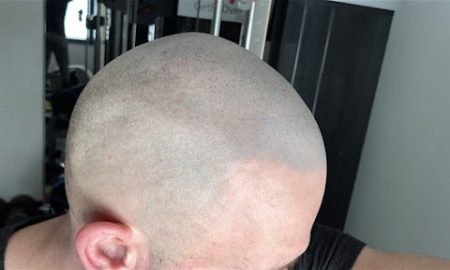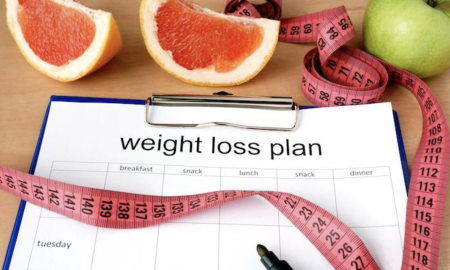
Whether you’re a professional athlete or someone who enjoys working out on the weekends, your body undergoes a lot of stress when you train actively. Just like any machine, your body needs proper care and maintenance to keep performing at its best. Here are some tips from our experts on how to nurture your body if you train actively.
Start with a proper warm-up to increase your heart rate and blood flow gradually
A proper warm-up before exercise is essential in order to prepare your body for physical activity and avoid injury. Starting with easy movements that activate the muscles but don’t require too much effort will increase your heart rate and blood flow slowly, rather than trying to jump into a high-intensity workout without any preparation. This helps your body become physically and mentally ready for the more strenuous routine ahead. Incorporating dynamic stretching into your warm-up can also help to improve flexibility, coordination, and range of motion so that you can perform at your best. Taking a few minutes for a good warm-up will set you up for success and make sure your workout is as safe and effective as possible.
Do some mobility exercises to release tightness in your muscles and joints
For anyone who has ever experienced tightness in their muscles and joints, there is a simple solution that can help bring much-needed relief: mobility exercises. Mobility exercises are designed to slowly stretch the body and release tension that has built up around the joints, freeing you from stiffness and pain. Not only will these exercises loosen your muscles, but they will also increase your flexibility and strength. You may also research healthy activities in Stroud, for instance, so as to promote mobility in your body while also getting a healthy dose of fresh air. So don’t wait to start getting those knots out – start incorporating some of these easy-to-do mobility exercises into your daily routine to keep feeling free and energized.
Eat a nutritious meal or snack before and after your workout to refuel your body
Eating a nutritious meal or snack before and after your workout is essential to refuel your body. Not only will it help you stay energized, but it can also prevent over-exertion which can lead to fatigue and injury. Eating before exercising helps increase blood sugar levels and provides fuel for the body, which improves performance. After your workout, eating a protein-rich snack will help with muscle recovery and growth, while replenishing electrolytes lost during exercise. Taking the time to properly nourish yourself is an essential step in helping you reach peak performance while still being healthy.
Moreover, stay hydrated to keep your energy levels up
Staying hydrated is also key to an active lifestyle. When you exercise, it’s important to drink plenty of water before, during, and after your workout in order to replenish the fluids lost through sweat and prevent dehydration. Not only will staying hydrated help keep your energy levels up, but it will also help you avoid cramps, headaches, and dizziness. So make sure to keep a water bottle handy and take regular sips throughout the day to stay hydrated and energized!
Drink plenty of water throughout the day to stay hydrated
Staying adequately hydrated is essential for a functioning human body, as water makes up around 65% of total body weight. Drinking plenty of water during the day keeps us energized and helps regulate our internal body temperature. It’s also important for helping flush out toxins from the body and keeping our skin healthy. Many times dehydration can be mistaken for hunger, so drinking a glass of water when we ate snack cravings is recommended. Try to aim for 8 cups of fluid per day, which could include plain or flavored waters, fresh juices, smoothies, and herbal teas in addition to plain tap water. Keeping track of fluids throughout the day is also recommended because it helps you to identify patterns that can give you clues about any aspects of your lifestyle or diet that may not be optimally serving you.
Get enough sleep each night to recover from your workouts and allow your body to repair itself
Getting enough sleep each night is essential for helping your body recover from intense workout sessions. Sleep gives you energy, focus, and clarity throughout the day and aids in proper physical regeneration after tough workouts. Sleeping also helps both physically and mentally, allowing your body to heal from muscular injuries and repair itself so it can become stronger while reducing discomfort caused by tired muscles.
For instance, try to get seven to nine hours of sleep each night and stick to a regular routine. Allowing yourself sufficient time for rest will help you become more productive and efficient in both work and exercise, as well as reduce your risk for injury.
Listen to your body and take rest days when needed
Many of us want to push ourselves to the limits, whether it’s when we’re in the gym or training for a big event. But there comes a point when overtraining can actually do more harm than good. Taking regular rest and recovery breaks are essential for managing our energy and preventing injury or burnout. Your body usually knows what it needs; if you’re feeling fatigued, still sore from your last workout, lacking motivation, or not seeing the results you were hoping for then that’s often a sign that your body is trying to tell you something. While some rest days may feel like wasted time, in reality, they are an important part of overall muscle growth and progress. Not only that – but giving yourself permission to relax every few days will help motivate you during those tougher workout sessions as well!
If you want to improve your workout routine, there are a few things you should keep in mind. First, start with a proper warm-up to increase your heart rate and blood flow gradually. Second, do some mobility exercises to release tightness in your muscles and joints. Third, eat a nutritious meal or snack before and after your workout to refuel your body. Fourth, drink plenty of water throughout the day to stay hydrated. Fifth, get enough sleep each night to recover from your workouts and allow your body to repair itself. Lastly, listen to your body and take rest days when needed – overtraining can lead to injury or burnout.


















Follow Us